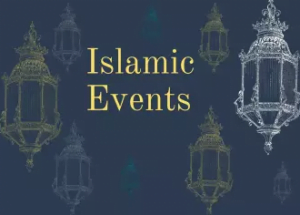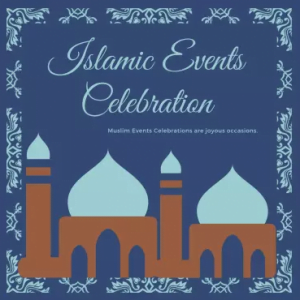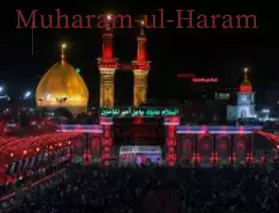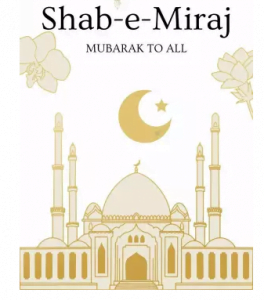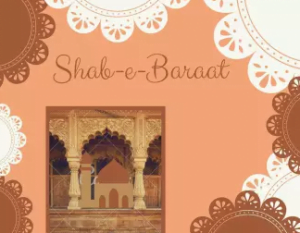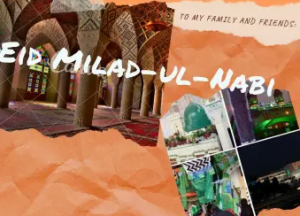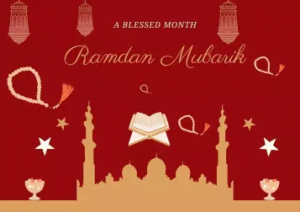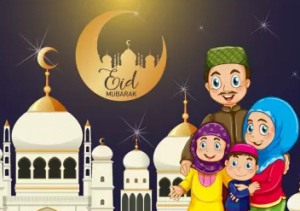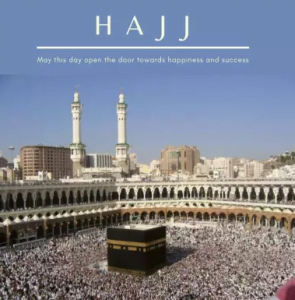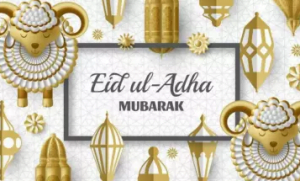Islamic events is information about the Islamic Festivals and Holidays. The Islamic calendar is known as the Hijri calendar. It contains 12 months that are based on the cycle of the moon. In this page we describe Islamic Events | Muslims Festival Celebrations and Holidays.
Contents
Islamic Events:
Islamic events is about the Islamic Festivals and Holidays. It is a purely lunar calendar. The Islamic calendar is known as the Hijri calendar. The Islamic calendar is consistently shorter than a solar year. Therefore, it shifts approximately 11 days every year with respect to the Gregorian calendar.
Islamic year has 12 Hijri months including Muharram, Safar, Rabi ul-awwal, Rabi ul sani, Jamadi ul awwal, Jamadi ul sani, Rajab, Shaaban, Ramadan, Shawwal, Dhul Qadah & Dhul Hajj. Every Islamic year starts with Muharram. It has one holy month of Ramadan. Hijri year has 2 Eids, Eid ul Fitr and Eid ul Adha. Eid Milad un Nabi is celebrate worldwide as well.
After Hijrah, Hijrah means “migration” in Arabic. This refers to the migration that the Prophet Muhammad made from Makkah to Medina in the year 622 C.E. Which marks the beginning of the Islamic Calendar. There are some countries where celebrate Islamic Events:
- Pakistan
- Turkey
- Saudi Arab
- Switzerland
- Grenada
- India
- Malta
- Brunei
- Rwanda
- Solomon Islands
- Singapore
- Congo
- Georgia
- Somalia
- Iraq
- Saint Lucia
- Kuwait
- Guatemala
- Thailand
- Palestine
- Sri Lanka
- Vatican City
- Belize
- Italy
- Lebanon
- Ghana
- Fiji
- Sweden
- Albania
Islamic Events Celebrations:
Celebrate with great feasts, family gatherings, music and street processions. Muslim Events Celebrations are joyous occasions. The largest of the Muslim festivals are Eid ul Fitr which takes place at the end of Ramadan. It also call the month of ritual fasting. Eid ul Adha which marks the time of the pilgrimage to Makkah.
Other Muslim festivals include the Milad an Nabi which celebrates the birth of the Prophet Mohammed. Others are Ras as Sana, Islamic New Year, and various saints’ name days known as moulids. Purely lunar based, the Islamic year is around 11 days shorter than that of the Western calendar.
The Islamic calendar has twelve months, each with 29 or 30 days. Because Islam relies on actual sightings of crescent moon at a given place. It is difficult to give dates in advance. Local Islamic centers will be able to provide the dates for the current year. These are undoubtedly the great days of the Muslim calendar. The festival revolves around the Islam and its History. There are some islamic events list:
- Muharram-ul-Haram.
- Shab-e-Miraj.
- Shab-e-Baraat.
- Eid Milad-ul-Nabi.
- Ramdan Mubarik.
- Eid-ul-Fitar.
- Eid-ul-Adha.
1. Muharram-ul-Haram:
Muḥarram in Arabic is ٱلْمُحَرَّم. It is the first month of the Islamic calendar. Muharram is one of the four sacred months of the year when warfare is forbidden. It’s held to be the second holiest month after Ramaḍān. The Tenth day of Muharram is known as the Day of Ashura. It is well known because of historical significance. Its mourning for the Shahadat of Ḥusayn ibn Ali, grandson of Muhammad.
Muslims mourn the martyrdom of Hassan ibn-e-Ali, Ḥusain ibn-e-Ali and their family. Better known as part of the Mourning of Muharram, Shia Muslims practice partial fasting. Sunni Muslims practice fasting on Ashura. Muharram is celebrate in all the world. Muslims remember the sacrifices the family of PUNJTANPAK.
Muslims begin mourning from the first night of Muharram. This event is also celebrate in Islamic Events. It continue for ten nights, climaxing on the 10th of Muharram, known as the Day of Ashura.
In the honouring martyrs by prayer and abstinence from joyous events. Shia Muslims fast on the 10th of Muharram but some people don’t eat or drink until Zawal. As a part of their mourning for Husain. In addition there is an important ziyarat book. The Ziyarat Ashura about Husayn ibn Ali. In the Shia sect, it is popular to read this ziyarat on this date.
2. Shab-e-Miraj:
According to Islamic tradition, Shab-e-Miraj is the “Night of Ascent.” This is when the Prophet Mohammad is believed to have transcended his spiritual form to become close to Allah and achieve a spiritual state that we humans could never fully understand.
Miraj is also known as Al Isra’ wal Miraj. It observed on the 27th day of the month of Rajab. To the seventh month in the Islamic calendar. This event marks the night that Allah took Mohammad on a journey from Makkah to Jerusalem and then to heaven.
Shab e-Meraj is an optional holiday. Employment and holiday laws in Pakistan allow employees to choose a limit number of holidays. Some employees may choose to take the day off on this day. However, most offices and businesses remain open.
There are different accounts of what occur during the Miraj. But most narratives have the same elements. Muhammad ascends into heaven with the angel Gabriel. He meets a different prophet at each of the seven levels of heaven. First Adam then John the Baptist, Jesus, Joseph, Idrees, Aaron, Moosa and lastly Abraham. After Muhammad meets with Abraham, he continues on to meet Allah without Gabriel.
Allah tells Muhammad that his people must pray 50 times a day. But as Muhammad descends back to Earth. He meets Moosa who tells Muhammad to go back to God. Than ask for fewer prayers because 50 is too many. Muhammad goes between Moosa and God nine times. Until the prayers are reduce to the five daily prayers, which God will reward tenfold. To that again, Moosa tells Muhammad to ask for even fewer. But Muhammad feels ashamed and says that he is thankful for the five.
3. Shab-e-Baraat:
Shab-e-Baraat is a holiday observe by Muslim communities on night between 14 and 15 Shaban. It’s regard as night when the fortunes of individuals for the coming year. These are decide when Allah may forgive sinners. In many regions, this is also a night when prayers are arrange. For forgiveness from Allah for one’s deceased ancestors.
Additionally, Twelver Shia Muslims commemorate the birthday of Muhammad-ul-Mahdi on this date. Salafi streams oppose the recognition of Shab-e-Baraat as exceptional for prayer. The base for celebrating Mid-Shaban is not without dispute. Whether or not 15 Shaban is regard as a special holiday. It has primarily been an issue of interpreting the Quran and classifying the Hadith.
Shab-e-Baraat’s Night. Baraat is an Arabic noun which is roughly translated to English as either innocence, records, assignment, deliverance or salvation.
- Laylat-al-Baraat
- Berat-e-Kandili
- Shab-e-Barat
- Nisf-u-Shaban
- Nim Shaban
Shab-e-Baraat is celebrate in countries including India, Bangladesh, Pakistan, Sri Lanka, Lebanon and Iran. Also in Azerbaijan, Turkey, Afghanistan, Uzbekistan, Tajikistan, Kazakhstan, Turkmenistan and Kirghistan. The Salafi Arabs do not celebrate this holiday. In the Arab world the festival is celebrate by Arabs with Sufi heritage and Shias. In Iraq, children are given candies as they walk around their neighborhoods.
4. Eid Milad-ul-Nabi:
Milad-ul-Nabi-al-Sharif or Eid Milad-un-Nabi in Arabic is مَولِد النَّبِي. Its aboutj the Birth of Holy Prophet. Sometimes simply called in colloquial Arabic mevlid, mevlit and mulud. Among other vernacular pronunciations called ميلاد, or mīlād. It is observance of the birthday of the Islamic prophet Muhammad which is commemorate in Rabi-ul-awwal.
Rabi-ul-*Awwal is the third month in Islamic calendar. 12th Rabi-ul-awwal is accept date among most of the Sunni scholars. While Shi’a scholars regard 17th Rabi-ul-awwal as the accepted date. This celebration goes back to the early days of Islam. When some of Tabiun began to hold sessions.
In which poetry and songs composed in honour of Muhammad were recite and sung to crowds. It also celebrate in Islamic Events. Some non Muslim majority countries with large Muslim populations such as India also recognise as public holiday.
Most denominations of Islam approve of commemoration of Muhammad’s birthday. Many Muslims began to disapprove its commemoration. They considering it an illicit religious innovation. Milad-ul-Nabi is recognize as national holiday in most of Muslim countries of world. Saudi Arab and Qatar are not celebrate this day because they are officially Wahhabi.
5. Ramadan Mubarik:
Happy Ramadan can be translate to Ramadan Mubarak. Ramadan is also known as Ramzan. Which also means “blessed Ramadan“. The greetings are different as Ramadan Mubarak offers a bless. Whereas Ramadan Kareem has debate around its use as it asks Ramadan to be generous to the other person. Ramadan is a holy month of fasting, introspection and prayer for Muslims.
The followers of Islam follow it with love and blessings. Ramadan has a very important and blessed night. That night is on 27th Ramadan, also called Laila-tul-Qadar. Muslims celebrate it with love, blessings and happiness. It is celebrate as month during which Muhammad receive initial revelations of the Quran. Pakistan also found on 27th of Ramadan. The holy book for Muslims is leading to muslims about it. Fasting is one of the five fundamental principles of Islam.
Each day during Ramadan, Muslims do not eat or drink from sunrise to sunset. Ramadan is celebrate as the month during which Muhammad receive initial revelations of what became the Quran. The holy book comes for Muslims from God. The Quran states:
“The month of Ramadhan in which was revealed the Qur’an, guidance for the people and clear proofs of guidance and criterion. So whoever sights the month, let him fast it.”
The first pre dawn meal of day during Ramadan is called “suhoor.” Each day’s fast is broken with meal known as “iftar.” Traditionally, date is eaten to break the fast. Iftars are often elaborate feasts celebrate with family and friends. The types of foods served vary according to culture.
6. Eid-ul-Fitar:
Eid-ul-Fitar is also called the “Festival of Breaking the Fast“. It is a religious holiday celebrate by Muslims worldwide. That marks the end of the month long dawn to sunset fasting of Ramadan. This religious Eid is the only day in the month of Shawwal during which Muslims are not permit to fast.
The date for the start of any lunar Hijri month. It varies base on when the new moon is sight by local religious authorities. So the day of celebration varies by locality. Eid al-Fitr has a particular salat that consists of two rakats. It generally perform in an open field or large hall. It may only be perform in congregation and features six additional Takbirs in the Hanafi school of Sunni Islam. Three at the start of first rakat and three just before rukūʿ in the second rakat.
Other Sunni schools usually have twelve Takbirs. Similarly split in groups of seven and five. In Shia Islam, salat has six Takbirs in first rakat at end of qira’a. Before rukū and five in second. Depending on juristic opinion of the locality. This salat is either farḍ, mustaḥabb or mandūb.
Traditionally, Eid ul-Fitr begins at sunset on night of first sighting of the crescent moon. If the moon is not observe immediately after 29th day of the previous lunar month. Then the holiday is celebrate the following day. Eid al-Fitr is celebrate for one to three days. It depending on the country. It is forbidden to fast on the Day of Eid. Eid has a specific prayer is nominate for this day. As an obligatory act of charity, money is paid to the poor and the needy before performing the Eid prayer.
7. Hajj:
The Hajj also have spell Hadj, Hadji or Haj in English. It is an annual Islamic pilgrimage to Makkah, Madina and Saudi Arabia are holiest city for Muslims. The pilgrimage rite begins on the 7th day of Dhū al-Ḥijjah and ends on the 12th day. Almost, two million persons perform the hajj each year.
Hajj is a mandatory religious duty for Muslims that must be carry out at least once in their lifetime. By all adult Muslims who are physically and financially capable of undertaking the journey, they can support their family during their absence. Once a believer has complete the pilgrimage, he or she may add title ḥājj or ḥajjī or ḥājjah to his or her name.
In Islamic terminology, Hajj is a pilgrimage made to the Kaaba. That us the “House of God” in the sacred city of Makkah in Saudi Arabia. It is one of the Five Pillars of Islam. Alongside Shahadah, Salat, Zakat and Sawm. The Hajj is a demonstration of solidarity of the Muslim people and their submission to Allah. The word Hajj means “to attend a journey”. Which connotes both the outward act of journey and inward act of intentions.
Muslims may also undertake an Umrah or “lesser pilgrimage” to Makkah at other times of the year. But this is not substitute for the Hajj. Muslims are still obligate to perform Hajj at some other point in their lifetime. The meaning of the verb “Hajj” is to circle to go around. In the Temple, every festival would bring a sacrificial feast. Similarly in Islam, person who commits Hajj to Makkah has to circle around the Kaaba and offer sacrifices.
8. Eid-ul-Adha:
The words aḍḥā and qurbān are synonymous in meaning ‘sacrifice’. It means ‘offering’ or ‘oblation’. The first word comes from the triliteral root “ḍaḥḥā” with associate meanings of immolate, offer up, sacrifice, victimize. The second word derives from triliteral root ”qaraba” with associate meanings of closeness, proximity. To moderate, kinship, to hurry, to seek and sacrifice. Also called Tabaski.
Eid al-Adha is the latter of two Islamic holidays celebrate worldwide each year. It consider the holier of the two. It honours the willingness of Ibrahim to sacrifice his son Ismael as an act of obedience to God’s command. Before Ibrahim could sacrifice his son. However, God provide a lamb to sacrifice instead. In commemoration of this intervention, an animal is sacrifice ritually.
One third of its meat is consume by the family offering the sacrifice. While the rest is distribute to the poor and needy. Sweets and gifts are given. It extended family are typically visit and welcome. In the Islamic lunar calendar, Eid-ul-Adha falls on the 10th day of Dhu-ul-Hijjah. It celebrate lasts for four days. In the international calendar, the dates vary from year to year. It shifting approximately 11 days earlier each year.
Islamic Events Observances:
2020 Calendar:
Ramadan: April 24 – May 23, 2020
Eid ul-Fitr: May 24, 2020
Hajj: July 28 – August 1, 2020
Eid ul-Adha: July 31, 2020
Islamic New Year: August 20, 2020 (1442 A.H.*)
Ashura: August 31, 2020
Milad an-Nabi (Prophet Muhammad’s birthday): October 29, 2020
2021 Calendar:
Ramadan: April 13 – May 12, 2021
Eid ul-Fitr: May 13, 2021
Hajj: July 17 – 21, 2021
Eid ul-Adha: July 20, 2021
Islamic New Year: August 9, 2021 (1443 A.H.*)
Ashura: August 20, 2021
Milad an-Nabi (Prophet Muhammad’s birthday): October 19, 2021
2022 Calendar:
Ramadan: April 3 – May 2, 2022
Eid ul-Fitr: May 3, 2022
Hajj: July 7 – 11, 2022
Eid ul-Adha: July 10, 2022
Islamic New Year: July 30, 2022 (1444 A.H.*)
Ashura: August 9, 2022
Milad an-Nabi (Prophet Muhammad’s birthday): October 8, 2022
2023 Calendar:
Ramadan: March 23 – April 21, 2023
Eid ul-Fitr: April 22, 2023
Hajj: June 25– 29, 2023
Eid ul-Adha: June 29, 2023
Islamic New Year: July 19, 2023 (1445 A.H.*)
Ashura: July 29, 2023
Milad an-Nabi (Prophet Muhammad’s birthday): September 27, 2023
2024 Calendar:
Ramadan: March 11 – April 9, 2024
Eid ul-Fitr: April 10, 2024
Hajj: June 14 – 18, 2024
Eid ul-Adha: June 17, 2024
Islamic New Year: July 7, 2024 (1446 A.H.*)
Ashura: July 17, 2024
Milad an-Nabi (Prophet Muhammad’s birthday): September 16, 2024
2025 Calendar:
Ramadan: March 1 – 30, 2025
Eid ul-Fitr: March 31, 2025
Hajj: June 3 – 8, 2025
Eid ul-Adha: June 7, 2025
Islamic New Year: June 26, 2025 (1447 A.H.*)
Ashura: July 6, 2025
Conclusion:
Islamic festivals or holidays are celebrate according to Islamic calendar. The traditional practice is festival dates are decide and declared by a committee of Muslim leaders. This practice is follow in majority of Muslim countries. Muslim leaders follow process of fist sighting of crescent moon after sunset to decide first day of each month. Then festivals are derive from there.

